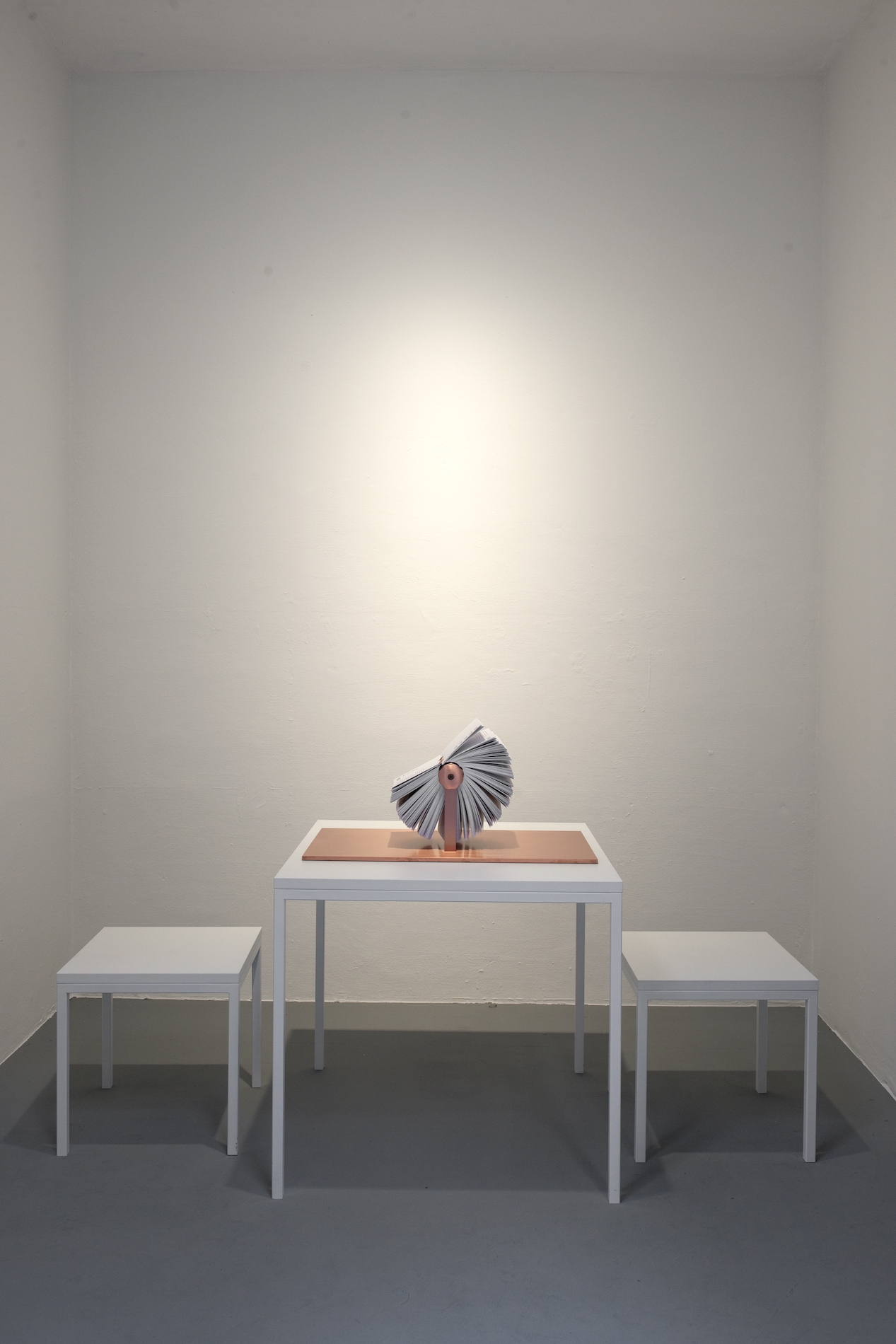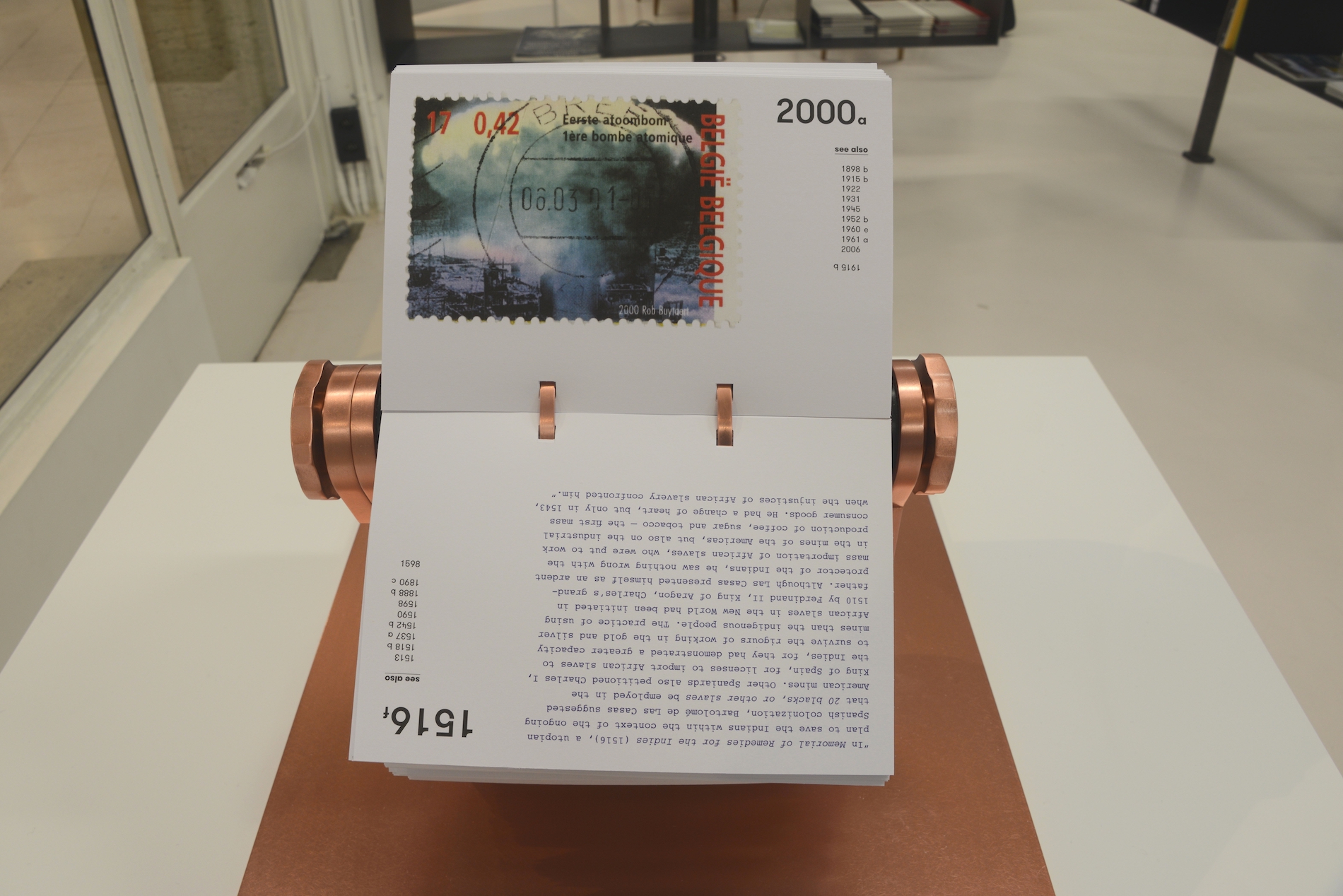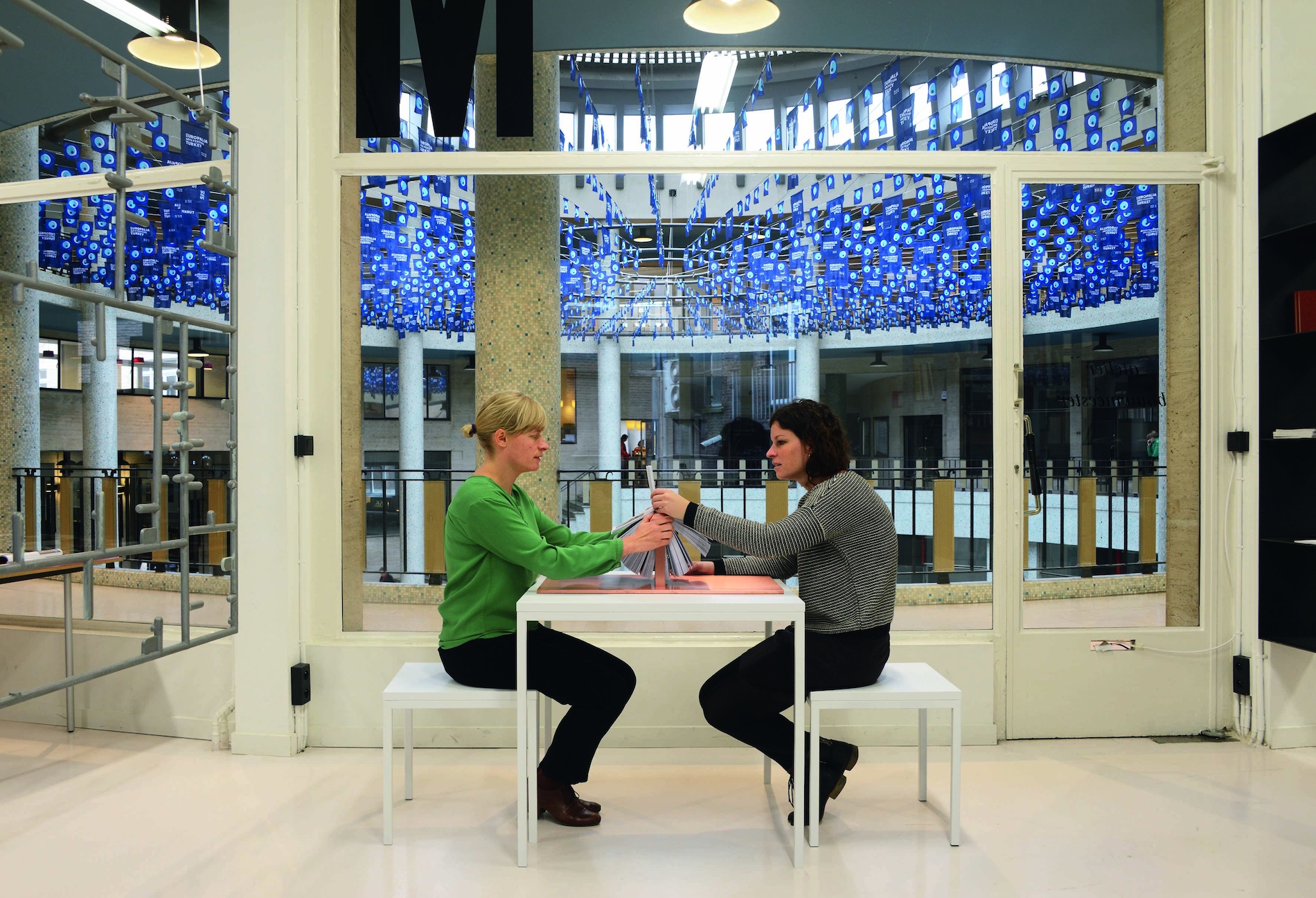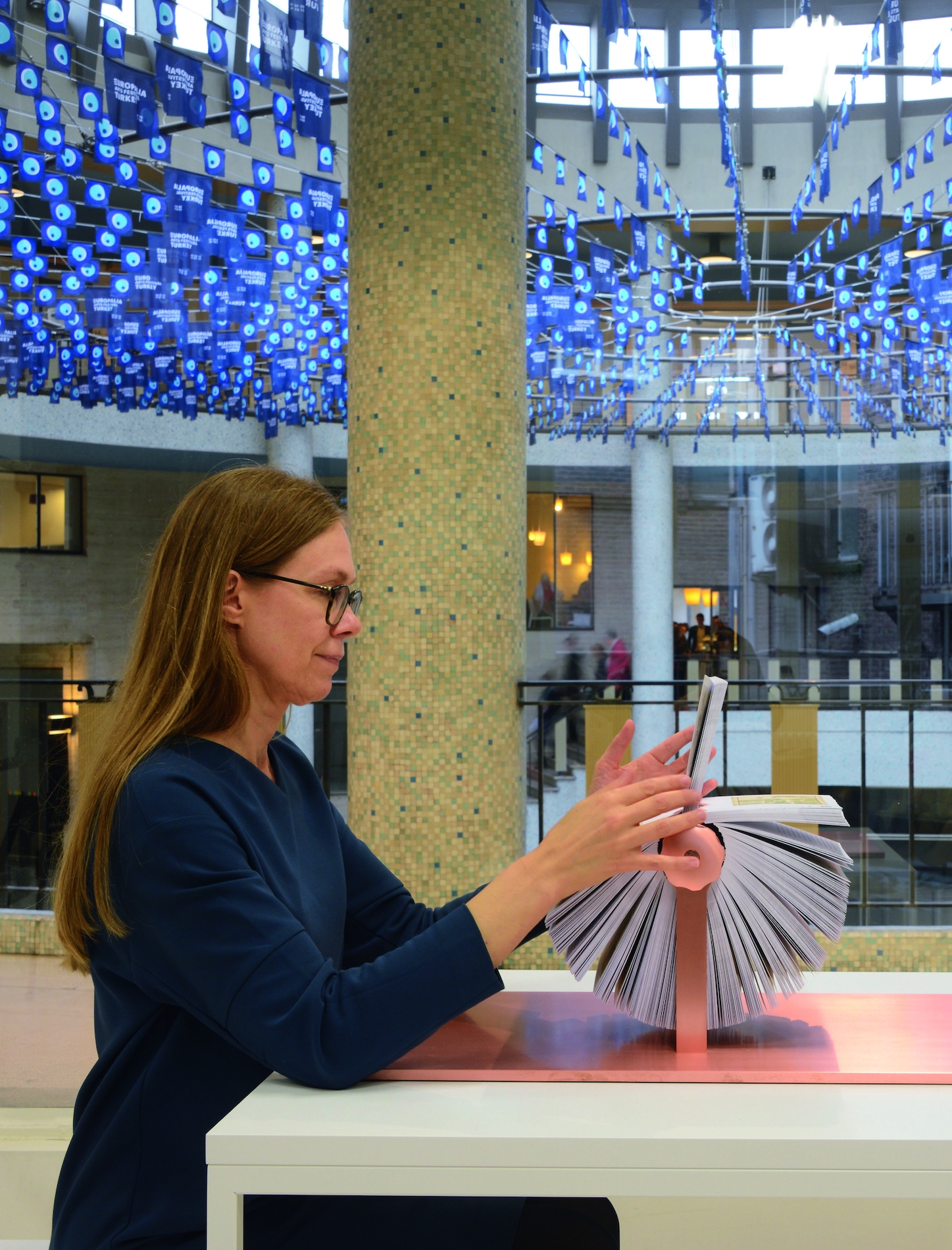Story Generator, 2015












A rotating ‘apparatus’ executed entirely in copper, Ana Torfs’ “Story Generator” calls to mind not only index card systems like Rolodex, the 16th century bookwheel of Agostino Ramelli, Juan Esteban Fassio’s machine for reading Raymond Roussel’s “Nouvelles Impressions d’Afrique”, but also the Mutoscope, an early motion picture device, with which the viewer flips through a series of cards to create the illusion of movement.
The viewer operates “Story Generator” in similar fashion with the help of a knob. The apparatus contains over five hundred ‘index cards’, printed on both sides with an eclectic array of images and text excerpts. But unlike the above-mentioned systems, “Story Generator” itself is two-sided: the machine is placed on a table with a stool on either side and can be viewed simultaneously by two people seated opposite each other. In a dazzling web of associations and cross-references, the visitors are guided through more than five hundred years of fractured histories, not in one continuous chronicle but in a fragmented loop of interconnected stories and scenes.
Torfs’ anthology is evidently not ‘neutral’, as we quickly descry certain themes in the discourse by the anonymous, seemingly omniscient narrator. The leitmotif, undoubtedly, is how the rising level of wealth in our part of the world since the start of the modern era, not just in simply material terms but also in the development of science, art and culture, has been systematically achieved at the expense of recklessly exploited regions and peoples overseas. Brussels turns out to be a hotspot where a notably large number of leading figures in the long history of economic and political power are passed in review, often in surprising combinations.
Many of these individuals were ‘generators’: they initiated something that would often have far-reaching consequences. In addition to Charles V and Leopold II, we meet Albrecht Dürer, Ferdinand Columbus (son of), the Tassis brothers, Empress Carlota of Mexico, businessman Edgar Sengier, Joseph Conrad, the world-famous orchid collector Jean Jules Linden, the explorer Stanley, Baron Edouard Empain, Karl Marx, Multatuli, Patrice Lumumba, Paul Otlet and many others.